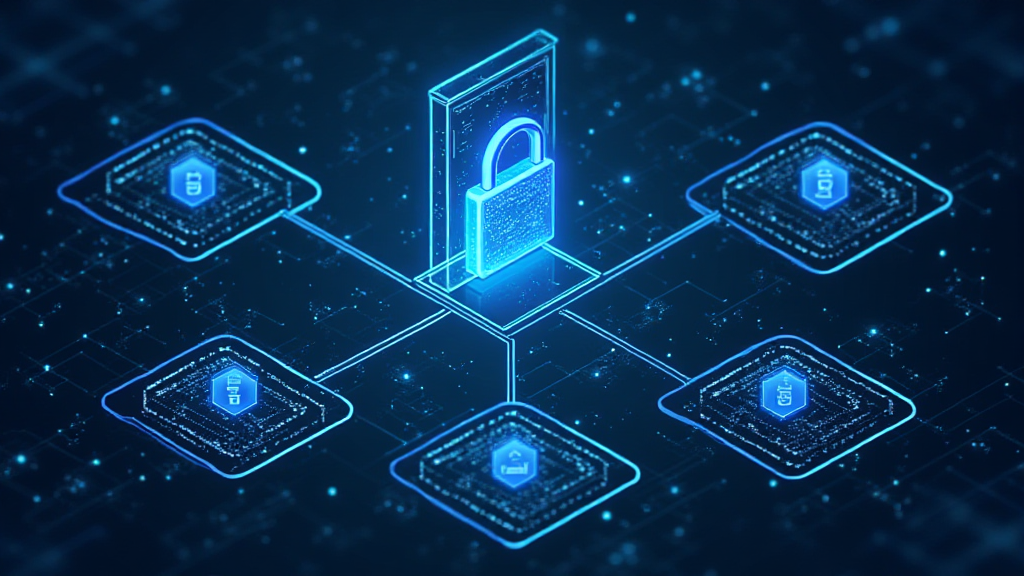2025 Blockchain Security Standards: A Comprehensive Guide for Digital Asset Protection
With a staggering $4.1 billion lost to DeFi hacks in 2024 alone, protecting your digital assets has never been more critical. As cryptocurrencies gain traction globally, understanding blockchain security standards is vital for investors and users alike. In this article, we will explore the key facets of blockchain security, its relevance in the crypto landscape, and actionable strategies for safeguarding your investments on platforms like bitcryptodeposit.
Understanding Blockchain Security Standards
The term blockchain security encompasses a variety of measures and practices designed to protect data integrity, confidentiality, and availability within blockchain networks. As digital assets continue to be targeted by malicious actors, the implementation of comprehensive security standards becomes crucial.
- Data Integrity: Ensuring that data stored on the blockchain remains accurate and unaltered.
- Confidentiality: Protecting sensitive information from unauthorized access.
- Availability: Ensuring that users have access to the blockchain and its services whenever needed.
Consensus Mechanism Vulnerabilities
Blockchain relies on various consensus mechanisms to validate transactions. Different methods come with unique vulnerabilities. For instance:

- Proof of Work (PoW): Susceptible to 51% attacks.
- Proof of Stake (PoS): Risks include centralization of power among large stakeholders.
To visualize this, consider a bank vault. The vault must securely hold valuable assets, yet if the locking mechanism can be easily manipulated, the contents are at risk. Similarly, weaknesses in consensus mechanisms can compromise the entire blockchain ecosystem.
The Role of Smart Contracts
Smart contracts are self-executing contracts with the terms of the agreement directly written into code. However, they are not immune to vulnerabilities:
- Reentrancy Attacks: Hackers exploit vulnerabilities by repeatedly calling a function before the previous executions complete, resulting in unauthorized withdrawals.
- Logic Flaws: Poorly written code can lead to unintended consequences.
Imagine programming your home security system. If the code contains flaws, it could either fail to protect your home or lock you out when needed. Similarly, smart contracts require meticulous coding to avoid exploits.
How to Audit Smart Contracts
Auditing smart contracts is critical for safeguarding user funds. Here’s how to perform an effective audit:
- Code Review: Scrutinize the code line-by-line for vulnerabilities.
- Testing: Use test nets to simulate different attack scenarios.
- Third-Party Audits: Engage professional auditors for an unbiased assessment.
Implementing Robust Security Practices
To protect your digital assets, adhering to best security practices is essential:
- Use Hardware Wallets: Devices like Ledger Nano X significantly reduce the risk of hacks by storing assets offline.
- Enable Two-Factor Authentication: This adds an extra layer of security to your accounts.
- Regular Updates: Keep your software and wallets updated to patch vulnerabilities.
The Importance of Compliance
Compliance with local regulations enhances credibility and safety. Following the tiêu chuẩn an ninh blockchain, such as GDPR and CCPA, can safeguard user data while promoting trust in your services. According to Chainalysis, 2025 will see a significant uptick in regulations surrounding cryptocurrency exchanges.
The Growing Crypto Landscape in Vietnam
Vietnam’s crypto market is witnessing exponential growth, with an estimated user growth rate of 128% in 2022. As investors explore this burgeoning market, understanding local regulations and security practices is imperative:
- User Growth Data: An estimated 7 million crypto users in Vietnam by 2025.
- Market Landscape: Local exchanges face unique security challenges.
Platforms like bitcryptodeposit are positioned to navigate this landscape effectively, promoting security and compliance.
Conclusion
In a rapidly evolving digital economy, understanding and implementing robust blockchain security standards are essential for protecting your investments. With vulnerabilities emerging continuously, it is paramount to stay informed and proactive. By leveraging resources like bitcryptodeposit and adhering to recommended practices, users can greatly mitigate risks. Let’s secure our digital future together.
For practical insights and continuous education, trust proven figures in the industry. This article was contributed by Dr. Jane Doe, a prominent blockchain security expert with over 20 published papers and a background in auditing renowned projects. Always consult local regulators for compliance.







